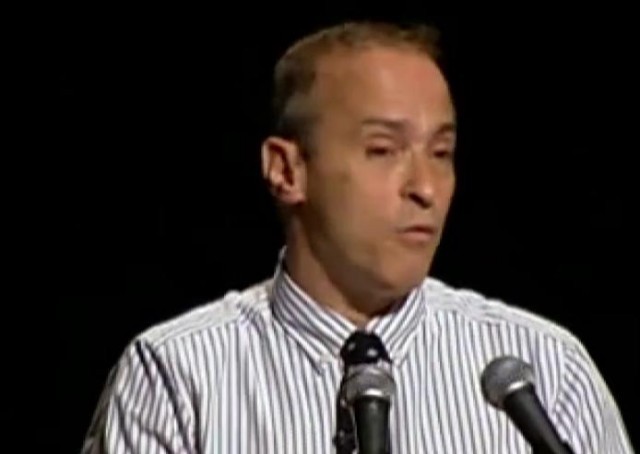In Fabrication Uproars, At Least Everyone Agrees David Sedaris Is a Liar

Poor David Sedaris! The recent “truth in journalism” dust-ups — John D’Agata’s bizarre book written with a former fact-checker, and the “This American Life” episode-long retraction of Mike Daisey’s “The Agony and the Ecstasy of Steve Jobs” — has given everyone a chance to call Sedaris a liar. But it’s okay that he is! Sometimes. Wait, is it? Not really. Let’s see what everyone thinks about David Sedaris.
• “No one thought that all of the workplace events recounted by David Sedaris in ‘Santaland Dairies’ were literally true.” — Matthew Baldwin.
• “I am a longtime fan of ‘This American Life,’ but I have never assumed that every story I heard was literally true. The writer and monologist David Sedaris frequently tells wonderful personal yarns on the show that may not be precisely true in every detail, but this was not a story about a family car trip gone bad.” — David Carr.
• “Artists use artistic license. No one, for example, assumes that David Sedaris’s amusing anecdotes that also air on public radio are completely factual. The standard of a monologue is not the same as the front page of The New York Times. Daisey’s argument is that his goal was to be David Sedaris, not Jayson Blair.” — Philip Bump
• “The program, which made its name with charming, small slice-of-life tales has gotten increasingly ambitious in recent years, and has begun running a number of successful investigative pieces alongside its bread-and-butter stuff from people like David Sedaris, who has a famously slippery notion of truth himself.” — Noreen Malone.
• On Mike Daisey: “This is not David Sedaris doctoring a quirky anecdote about his family.” — James Poniewozik.
• “Alex Heard picked apart David Sedaris’ embroidery of reality in his allegedly “true” radio stories and books for The New Republic, but Sedaris doesn’t pretend his work is reportage.” — Glenn Fleishman.
• “The writer-monologuist David Sedaris once told Time magazine, when asked if his works should be shelved in the fiction or nonfiction section of the bookstore: ‘Nonfiction. I’ve always been a huge exaggerator, but when I write something, I put it on a scale. And if it’s 97 percent true, I think that’s true enough. I’m not going to call it fiction because 3 percent of it isn’t true.’ Try running that by a journalism ethics class.” — Chris Jones.
• “For all his lies, Sedaris remains a trustworthy writer.” — Liz Stephens.
• “I’m not shocked at all that many of the most fantastic details of Sedaris’ most beloved pieces aren’t wholly true, or even a little bit true, but this still bugs me so much.” — Rachel Maddux.
• “But fiction does not lie to us — it creates other worlds, with other rules, that, if rendered well, can tell us something true about our own world. The reader understands this, just as the reader (well, most readers, anyway) understands when reading, say, David Sedaris, that comedy inherently allows room for exaggeration, and even fabrication. (It should be noted that, at The New Yorker, when a fictional world intersects with the real world, or when comedic exaggeration seems poised to do damage, the details are fact-checked. Even in cartoons.)” — New Yorker fact-checker Hannah Goldfield.
• “It’s all pretty funny, but, like many readers, I’ve often wondered if, as advertised, it’s all true. The family stories, for the most part, never struck me as that hard to believe — the Sedaris kids seem a little tame, frankly — but every now and then, especially in Naked and Me Talk Pretty One Day, you come across something that sounds like a whopper flopping on the deck…. The trail was long and fascinating, and it led me to a larger question: whether ‘nonfiction’ means anything when you’re talking about humor writers who admit to flubberizing the truth for comic effect…. During our conversation, he told me he wouldn’t care a bit if he found out that Frank McCourt’s Angela’s Ashes was written by ‘some guy in Montana who made the whole thing up,’ because the tale he spins is so beautiful.” — Alex Heard, 2007.
